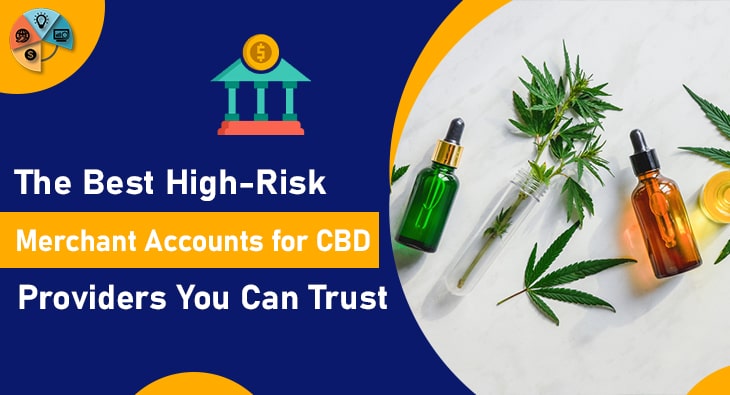Introduction to High-Risk Merchant Accounts
High-risk merchant accounts cater to businesses in industries that face elevated risks of chargebacks and fraud. Sectors such as travel, adult entertainment, CBD products, and online gaming often encounter difficulties when securing payment processors due to the perceived higher risk. These businesses usually need specialized payment solutions that can manage the complexities associated with high-risk transactions. Traditional financial institutions are often reluctant to work with such merchants, which can complicate the process of finding a reliable payment processor.
For high-risk merchants, the choice of an e-commerce platform becomes critically important. An ideal platform should offer robust security measures, support various payment gateways, and provide tools to manage and mitigate risks effectively. The ability to process transactions seamlessly and securely can be a significant factor in the success of a high-risk business. Additionally, these merchants often require additional features, such as advanced fraud detection, chargeback protection, and specialized customer support tailored to their unique needs.
High-risk merchants also have to navigate a maze of regulatory requirements and industry standards to ensure compliance, which adds another layer of complexity to their operations. The right platform can assist in maintaining compliance and reducing the risk of financial losses due to fraudulent activities.
In this landscape, finding a platform that not only meets these criteria but also supports business growth can be challenging. The e-commerce solution should facilitate not just sales, but also the unique requirements that come with operating in high-risk sectors. As high-risk merchants weigh their options, they need to consider how well a platform can handle their specific challenges and whether it aligns with their long-term business strategies.
Some Related Blogs
- Is It Worth Getting High-Risk Merchant Services for Your Business?
- How to Switch Merchant Accounts for Your Small Business: A Step-by-Step Guide
- Navigating the Challenges of High-Risk Payment Solutions in 2025
- How to Save Money with the Right Merchant Account for Your Small Business
Overview of Shopify
Shopify stands out as a prominent e-commerce platform that equips businesses with the tools needed to establish and manage an online store efficiently. Renowned for its rich set of features, Shopify accommodates a wide range of merchant needs, including those of high-risk merchant accounts.
The platform offers customizable templates that allow businesses to create unique and visually appealing online stores. In addition, Shopify provides SEO tools to help merchants improve their online visibility, which is critical for driving traffic and sales. One of the platform’s most appealing aspects is its extensive app ecosystem. This ecosystem enables merchants to extend the functionality of their online stores through a variety of apps, from marketing tools to inventory management solutions.
Another standout feature is Shopify’s ease of use. The platform’s user-friendly interface makes it accessible for businesses of all sizes, from small startups to large enterprises. This simplicity is advantageous for high-risk merchants, who often need to focus on their core business activities without getting bogged down by technical challenges.
Shopify also offers strong customer support, providing merchants with the assistance they need to resolve issues quickly. This level of support is crucial for high-risk merchants who may face unique challenges in their operations. The platform’s commitment to providing reliable and prompt customer service has contributed to its popularity among e-commerce businesses.
Overall, Shopify provides a comprehensive and versatile solution for merchants looking to establish and grow their online presence. With its robust set of features and user-friendly design, the platform has become a preferred choice for many in the e-commerce industry.
Pros of Using Shopify for High-Risk Merchants
Shopify’s extensive app ecosystem offers high-risk merchants the ability to enhance their online stores with specialized tools tailored to their unique needs. From advanced fraud detection to inventory management solutions, the platform’s versatility allows businesses to operate more efficiently and securely.
Another key benefit is the customizable templates that Shopify provides. High-risk merchants can create unique and professional-looking stores that reflect their brand’s identity. This customization can help attract and retain customers, which is vital for businesses operating in high-risk sectors.

Additionally, Shopify’s SEO tools can significantly improve a store’s online visibility. By optimizing their website for search engines, high-risk merchants can drive more traffic and potentially increase sales. This feature is especially important for businesses that rely heavily on online presence.
The platform’s scalability is another significant advantage. As high-risk merchants grow, Shopify can easily accommodate increased traffic and sales volume. This scalability ensures that businesses do not outgrow the platform, providing a long-term solution for online store management.
Shopify’s robust customer support system also stands out. High-risk merchants often face unique challenges that require prompt and effective solutions. The platform’s dedicated support team is available to assist with any issues, ensuring that merchants can quickly resolve problems and maintain smooth operations.
Finally, Shopify’s integration with various third-party apps allows high-risk merchants to add features that specifically cater to their industry needs. This flexibility ensures that businesses can customize their online stores to meet their specific requirements, enhancing their ability to manage risks and improve customer satisfaction.
Cons of Using Shopify for High-Risk Merchants
High-risk merchants may find several challenges when using Shopify. One of the most significant issues is the potential for account holds or terminations. Given the nature of high-risk industries, Shopify and its associated payment processors might freeze or terminate accounts if they detect activities that seem too risky. This can disrupt business operations and lead to financial losses.
Additionally, Shopify’s built-in payment gateway, Shopify Payments, often does not support high-risk industries. This means merchants will need to rely on third-party payment processors, which may come with higher fees and additional terms that could impact profitability.
Another concern is the potential lack of industry-specific features. While Shopify offers a wide range of apps and integrations, high-risk merchants might still find it lacking in tools specifically designed for their unique needs. This could require additional investment in custom development or third-party solutions, adding to the overall cost of using the platform.
Moreover, while Shopify is generally user-friendly, high-risk merchants might require more advanced customization and security features, which can complicate the setup and maintenance of their online stores. This complexity might necessitate hiring specialized developers or consultants, further increasing operational costs.
Lastly, compliance and regulatory challenges can be a significant hurdle. High-risk merchants must adhere to stringent regulations, and Shopify’s default settings may not always meet these requirements. Ensuring compliance could involve additional layers of verification and security measures, which can be both time-consuming and costly.
In summary, while Shopify offers a robust platform with many advantages, high-risk merchants should carefully weigh these potential drawbacks to determine if it is the right fit for their specific needs and operational requirements.
![]()
Email us anytime!
Email customer service 24/7
![]()
Call us anytime!
Reach customer care 24/7 at +1 (727) 330-3944



One thought on “Is Shopify Right for High-Risk Merchant Accounts? Pros and Cons Explained”
Comments are closed.